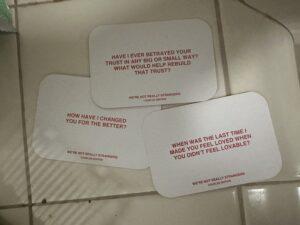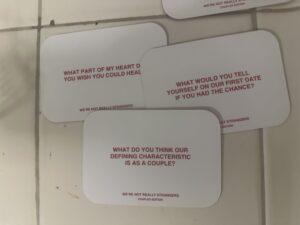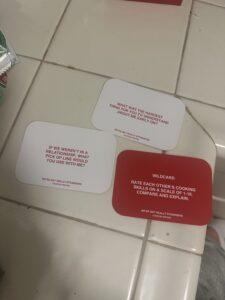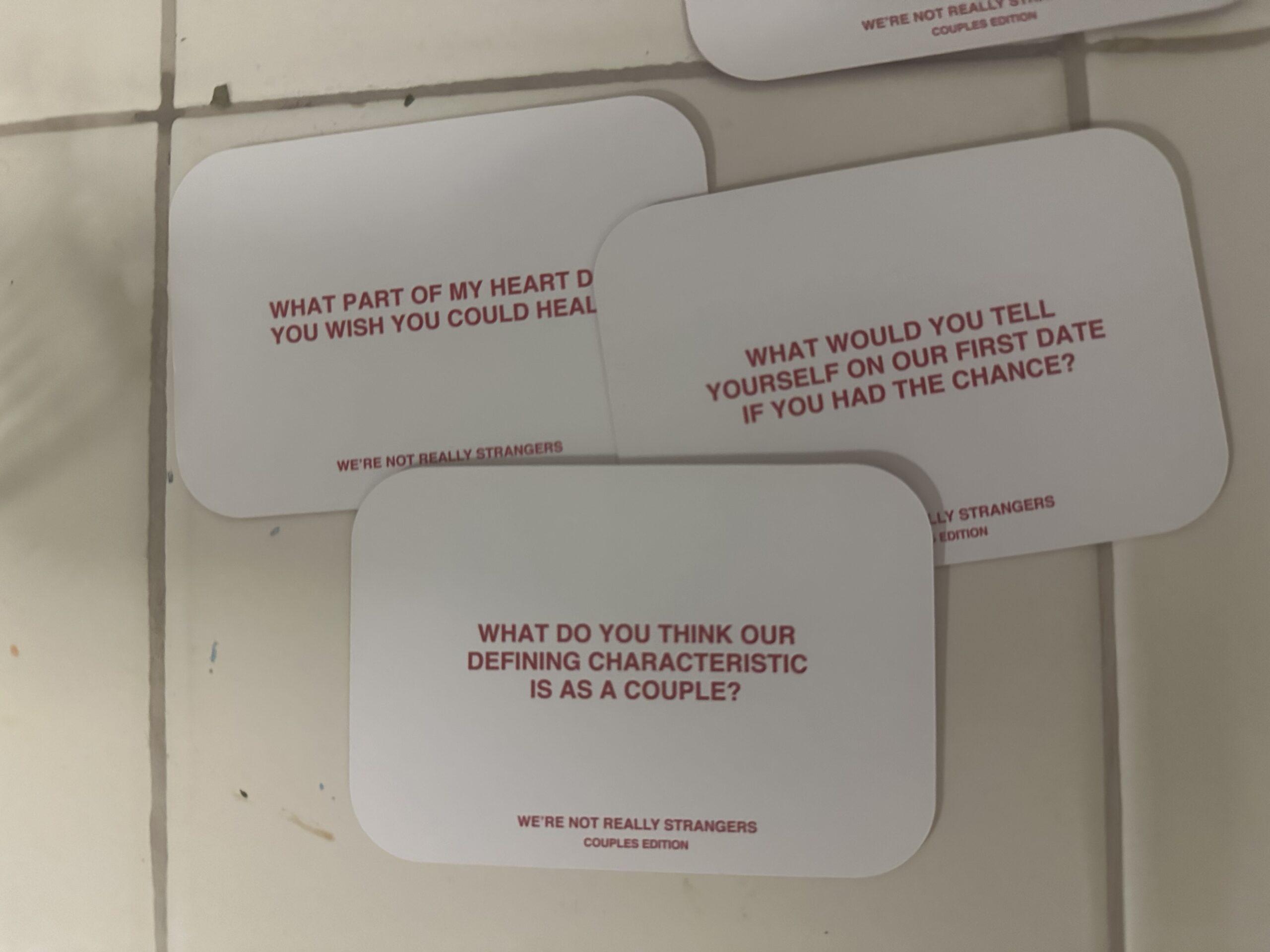For my critical play, I played “We’re Not Really Strangers”, the Couples Edition, with my partner. The game consists of different cards with questions on them that aim to encourage open conversation and intimacy between couples, and was created by Koreen, a model and artist based in LA. There are 3 levels of cards, with 1 being about “Perception”, 2 being about “Connection”, and 3 being about “Reflection”. Although this edition is specifically targeted towards couples, it can range from 2-6 players and has an age range of 15+. When playing, I noticed that the game tries to encourage vulnerability and connection between players by building in elements of surprise and open-endedness, emphasizing judgment-free reciprocity.
One thing I enjoyed about the game was the fact that you can’t see what the card says before you pick one out of the deck. The fact that neither me nor my partner knew what was coming made it feel like we were sharing a new experience together, which made it feel like a safe space since we were both navigating questions like these for the first time. In addition, unlike most games, there isn’t really ‘rules’ on the box or online for how to play the game. Rather, the game seems intentionally open-ended in order for the focus to be on the players themselves, with the game serving instead as more of an avenue of discussion. The way I played it was that for each question, we would each respond, rather than taking turns per card. This contributed to a feeling of mutual understanding and reciprocity; even though I felt ‘put on the spot’ by some of the more personal questions, it still felt like a safe space because I had the expectation that if I responded honestly, my partner would reciprocate with the same level of honesty to that question. This reminded me of the concept of “opt-in intimacy” from the video on game design for building friendships. Since we realized that both of us were in a situation where we had to be vulnerable, it created a safe space where we could reveal risky information without the fear of rejection. Furthermore, the video talked about how trust grows slowly over time. Since the game is so open-ended, and there’s no concrete ‘goal’, it encourages you to play it for as long as you want. This allowed us to grow more comfortable being honest with one another as we got more used to navigating the questions.


One feature of the game that I sometimes liked and sometimes didn’t like was the variety between different questions, especially within levels themselves. For example, two questions we got from level 1 were “What was the hardest thing for you to understand about me early on?” and “If we weren’t in a relationship, what pick up line would you use with me?”. I initially liked the idea of mixing more fun, lighthearted questions with more heavier ones in order to ease any tension that may have arisen after having a particularly intimate conversation. However, in practice, I found that it was sometimes jarring to get a more ‘silly’ question after a more personal one. At certain points, I felt like it somewhat interrupted the slow buildup of intimacy throughout the game; but I agree with the game maker’s vision of not having every question be too heavy, and instead building connection through more lighthearted and creative discussions. One thing that could remedy this is to have an entire category or level just for more lighthearted and silly questions, so then couples themselves can choose when they want the conversation to go in a lighter direction.





